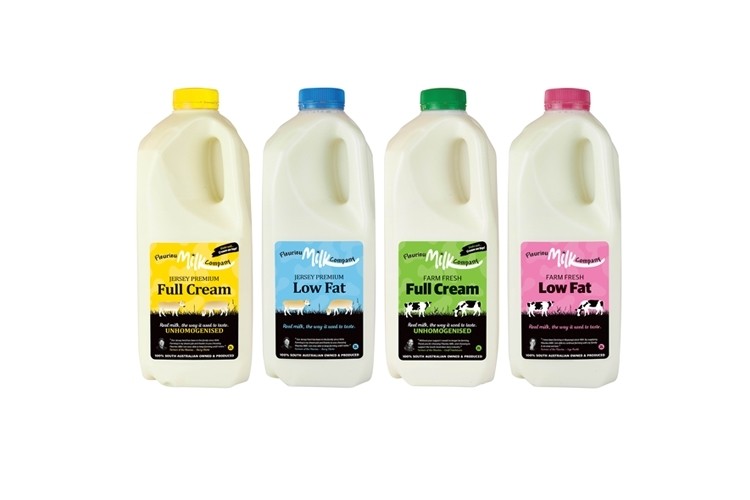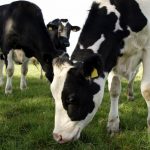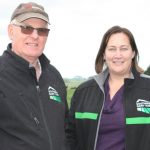
Today, with an upgraded processing plant, and on the back of sharp growth, it seems a world away from the travails the segment continues to endure.
Fleurieu, now South Australia’s biggest locally owned milk processor, was established by three dairy farming families in Myponga, about 60km from Adelaide, who were fed up with the low prices they were being paid. They decided to bottle their own milk.
It has become commonplace in Australia for farmgate prices to be below the cost of production for many farmers. Accordingly, the number of dairy farms has declined from 22,000 in 1980 to less than 6,000 in 2018. The Myponga area is no exception, with the number of local farms falling from 40 to just 10 in a similar period.
Right from the start, the families chose to rail against the cost-cutting trend that had been demanded by the major supermarkets who bought their milk.
Instead of paring down their margins to a minimum, to cater for the dollar-a-liter prices the supermarkets have become known for, they decided to produce a milk with high butterfat and protein, and sell it to local stores for a premium price.
“They saw it as the way dairy should be. Since then it’s grown legs, to be honest,” said Nick Hutchinson, Fleurieu’s general manager.
A decade after the so-called supermarket milk wars began, and not long after they came to an end, the company still avoids selling to the likes of Coles, Woolworths and Aldi.
Instead, its name has become synonymous with supporting local farmers, who it has helped produce milk for a profit. Five, all within 5km of its plant, now benefit from its maverick approach to business.
“We are in some supermarkets, but they’re all locally owned. It’s about telling people the good news story that we are supporting these local farmers,” said Hutcinson.
“As we grow, we are able to bring in new farmers who might not otherwise have viable businesses in an industry that is battling. We’ve been bucking every trend the industry has got, really.”
Leaving milk intact
Many of the major Australian dairies will strip some the cream and butterfat protein out of their milk to make it as cheap as possible for the major supermarkets, which hold phenomenal sway in Australia. They then use this cream and protein to make higher-margin value-added products, which might just give them a margin.
By contrast, Fleurieu leaves the milk intact, and works with its farmers to ensure they are able to afford to give their cows the best diet, which actually enhances their milk’s nutritional levels. It’s a pretty simple model: as some dairies take away, the South Australian milk company strives to enhance the premium-ness of its output.
In turn, cafes and foodservice operators are willing to pay more to put a better froth on their lattes. By spending just an extra dollar to pay for better milk, customers will get coffee that tastes better.
“It’s been shown that people are willing to pay the price if there is quality in the product. There is no need to sell below cost,” said Hutchinson. “It’s hurting the farmers and it’s killing the processors at the moment.”
Is this approach radical? The general manager thinks not. He says it’s just going back to basics, to how the dairy industry was 50 years ago, before globalization, milk powders and supermarket wars began to take their toll.
Over the last two years, Fleurieu has increased its staff from 14 to 50 and expanded its distribution network across South Australia and into some parts of Victoria, New South Wales and the Northern Territory.
A processing upgrade this year has ramped up production from 1,800 liters an hour to 4,000 on the back of increasing demand. Having taken on its fifth supplier farm 12 months ago, it is now preparing for another to come on board in January
“These are farms we are taking on now as a major processor, and as such it enables us to pay them a better price for milk so they can stay in the industry,” said Hutchinson.
“We are confident in what we do, we know that our business model stacks up. It’s been 13 years now, but in the last two years we have seen 40%-plus growth.”
Export markets
In addition, export markets have been starting to open up. Fleurieu will next week have its yogurt going into Tokyo for the first time, and it is has been selling fresh milk, flavored milks and yogurt in Singapore since June. There are also ongoing negotiations in different countries in the Middle East and India. Though the export markets will never be huge for the company, it’s always a bonus to move a little more milk around the world.
“It’s surprising to be honest. It gives us confidence in our brand, and we can see how we are getting a reputation for quality,” said Hutchinson.
“All our export inquiries have been the same: we haven’t gone chasing. We just get the odd email from importers and it’s all grown from there.”
More than anything, though, paying local dairy farmers decent prices for their milk and pushing the locally made and owned message has contributed to the company’s continuing growth.
Local retailers have thoroughly bought into this approach and though it may seem counter-intuitive for them to stock a grocery commodity that costs much more than other products that look and taste similar, they have found they are reaping the benefits.
“The supermarkets we are dealing with are probably trying to differentiate themselves from Coles, Woolworths and Aldi, so by stocking local South Australian products, they are going against the mainstream trend,” said Hutchinson.
“Instead of making probably 3 cents a bottle out of the dollar-a-liter stuff, they’re making a making a dollar per bottle, so for them it’s quite beneficial to push consumers to our milk.”

























